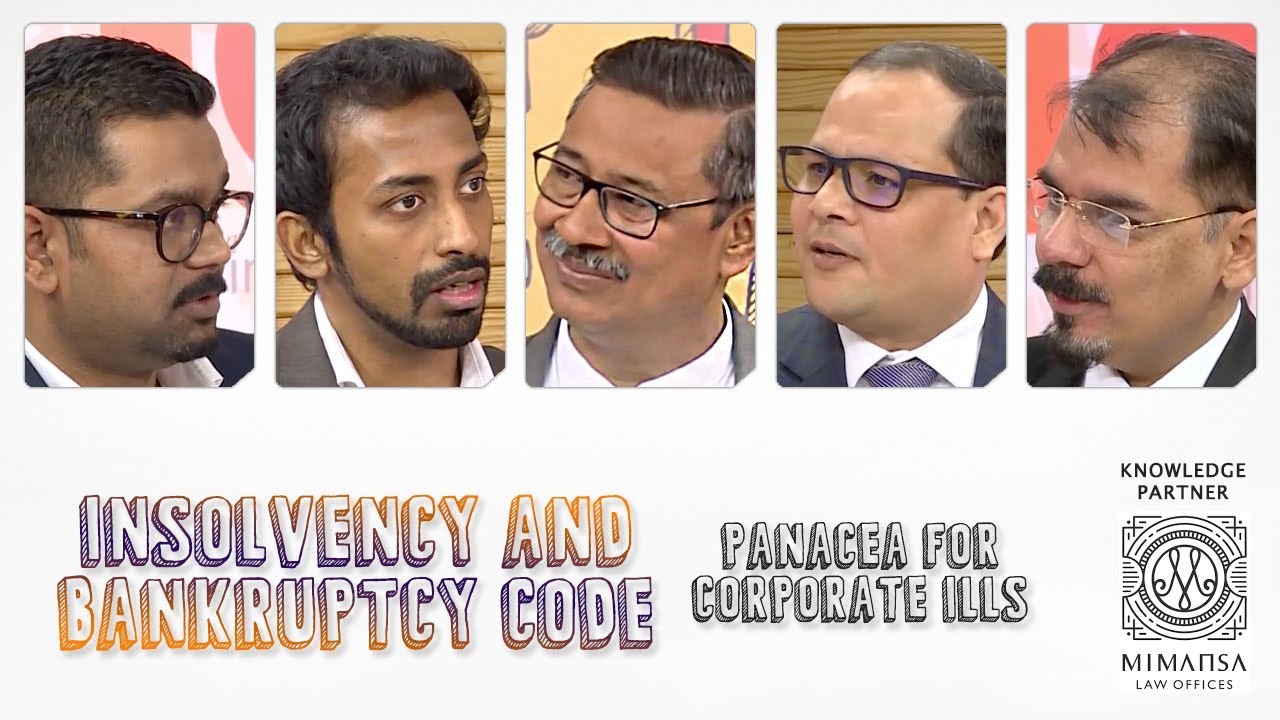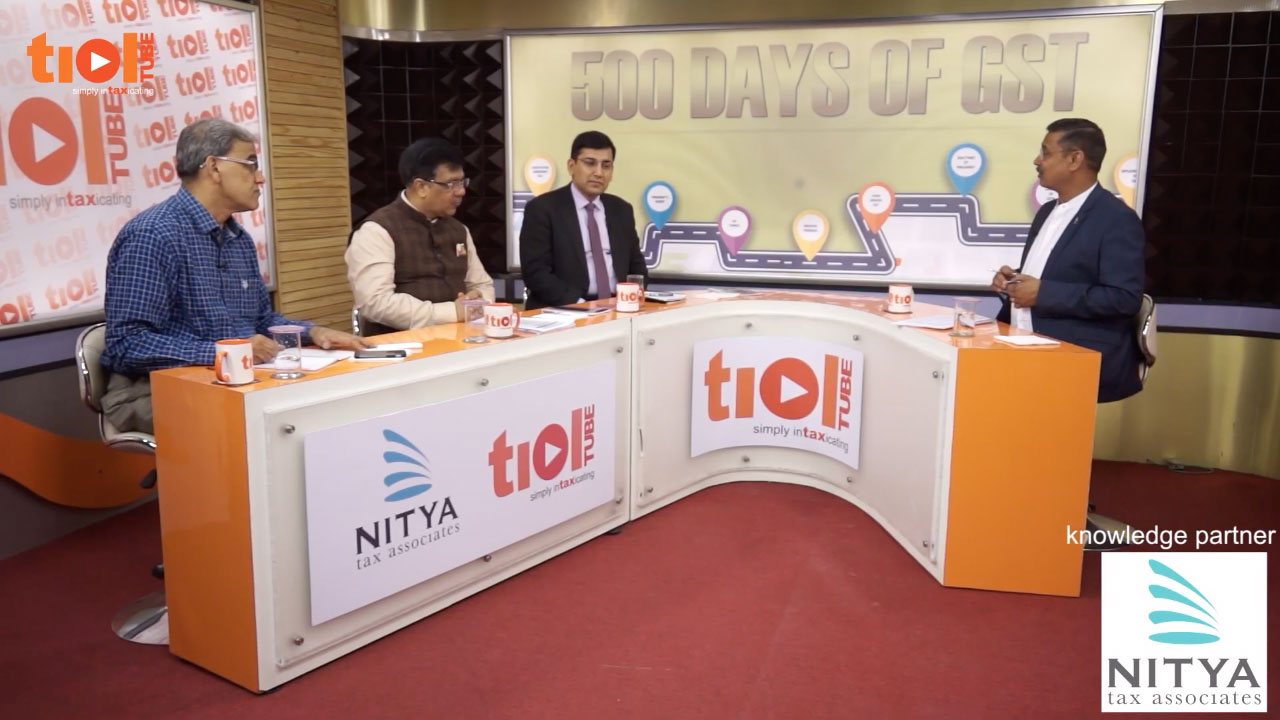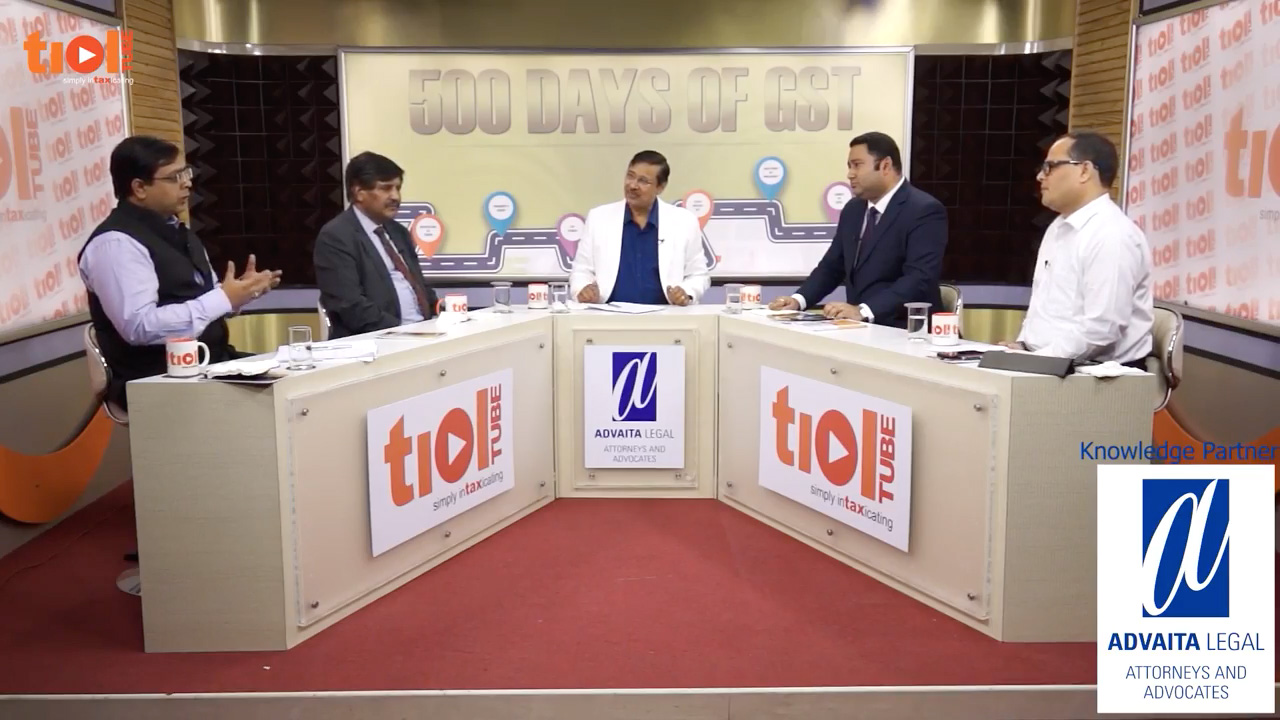SERVICE TAX
2018-TIOL-3740-CESTAT-DEL
CCE & ST Vs Prime Engitech Pvt Ltd
ST - The assessee during the period of dispute has carried out the activity of modification and ornamentation of motor vehicles - On the motor vehicles such as tempo traveller given by clients, the assessee has carried out installation of goods such as air conditioners, carpets as well as carried out other minor modifications of the vehicle such as seating - On the consideration received for such activity, Department noticed that assessee has not paid Service Tax, even though the activities carried out by them do not amount to what can be described as 'manufacture' as defined under Section 2 (f) of CEA, 1944 - The Department formed the opinion after investigation that the activities are liable for payment of Service Tax under category of 'BAS' defined under Section 65 (19) (v) as 'production or processing of goods for or on behalf of the client' - The assessee has carried out the work of carrying out minor modifications in motor vehicles - They have done the activities such as installation of air conditioners, addition of carpets, modification of seats and painting - It is also on record that assessee has considered the entire consideration received as supply of goods and has also offered the full consideration for payment of VAT - It is the argument of assessee that the activity is not covered within the definition of BAS as 'production or processing of goods for on behalf of the clients' - There are only two parties; the assessee as well as their customer - The customer has handed over the motor vehicle for carrying out the minor modifications to the assessee - It cannot be said that such processing has been done on behalf of a third party - Further, the entire activity has been considered and declared by assessee as a supply of goods and VAT also stands paid - The levy of VAT as well as Service Tax is mutually exclusive and once the transaction has been considered and declared as sale of goods it is not open to reopen transaction and consider it as service - No merit found in impugned order and the same is set aside: CESTAT
- Revenue's appeal rejected: DELHI CESTAT
2018-TIOL-3739-CESTAT-DEL
Russell Interiors Pvt Ltd Vs CST
ST - The assessee is engaged in providing construction services, interior decorator services and is accordingly registered under service tax - Common Wealth Games (OC-CWG) alongwith the various other have been the assessee's clients - These services include the transfer of property in goods as well for execution of contract - Moot question to be decided for the present adjudication is as to whether the services rendered by assessee are in the nature of work contract service or the interior decorator services - The perusal of contract of assessee with his clients shows that the activity of construction and various affiliated works was to be carried out by assessee as per the technical specifications given after the approval of the architect of the client of assessee - This very perusal makes it clear that the assessee was not to provide services as that of design and technical assistance or consultancy - These particular findings are sufficient to hold that SCN has wrongly proposed the demand under interior decorator services and the adjudicating authority below also has been wrong by holding these services as interior decorator services - The perusal of order under challenge clarifies that the Commissioner himself has acknowledged the services of assessee when provided to OC-CWG to be in the nature of work contract service - The order is absolutely silent to create any distinction about services being provided by assessee to the clients other than OC-CWG - The contract of assessee with another client rather proves the contrary that the nature of services provided by assessee has always been same irrespective of the clients - Once such activity is acknowledged by the Department to be a work contract services there is no justification by concluding the similar activities to fall under any other category - The demand as confirmed is not sustainable - As regards to limitation, period in dispute is w.e.f. 2006-07 to 2011-12 and SCN is dated 19.10.2011 - The Department has invoked the extended period of limitation in accordance of proviso to Section 73 of the Finance Act - Perusal of the Order under challenge shows that there is no iota of evidence proving any act of suppression on mis-representation on part of assessee that too with the intention of evading taxes - The activity of assessee since is held to be work contract service, the Department is held to have wrongly invoked the extended period of limitation as there remains no evasion of tax on part of assessee what to talk of the intent to so evade - SCN is therefore held to be barred by time - The order is set aside: CESTAT
- Appeal allowed: DELHI CESTAT
2018-TIOL-3738-CESTAT-MAD
Sify Technologies Ltd Vs CGST & CE
ST - The assessee is engaged in providing various taxable services namely telecommunication service, online information and data processing retrieval services, internet café services, franchisee services and information technology software services - On verification of records, it was noticed that they had availed input service credit on insurance services for period from April 2014 to March 2015 - It appeared to the department that general insurance/insurance auxiliary services are not covered within the definition of input service and therefore the assessee is not eligible for the credit - The first issue is with regard to errors and omission policy taken by assessee for indemnifying the errors/omissions or defects in software products supplied by them - In the decision relied by assessee, the Tribunal has allowed credit on product liability insurance - The very same analogy can be applied for software products which are supplied by assessee - Further on analyzing the definition of input services, it can be seen that only those type of insurance services which fall under the category of life insurance, health insurance which are availed for personal consumption are excluded from the ambit of the definition - These policies which are for covering the product liability in case of defect to the products supplied would definitely come within the inclusive part of definition - The conclusion arrived by authorities below that these are post-manufacturing activities cannot be agreed - Even on analysis of definition, the inclusive part specifically mentions the services which can be availed upto the place of removal - The storage services are eligible only upto place of removal - So also outward transportation service is eligible only upto the place of removal - The inclusive part of definition does not qualify the list of services mentioned therein except storage and outward transportation with the words "upto the place of removal" - Needless to say accounting, auditing are related to post-manufacturing activity also - The errors and omission policy availed by assessee is eligible for credit - For the very same discussions, the transit insurance policy which is availed by assessee for moving the goods to the site where the output services are to be provided are also eligible for credit - The impugned order is set aside to the extent of disallowing credit to the assessee: CESTAT
- Appeal allowed: CHENNAI CESTAT
CENTRAL EXCISE
2018-TIOL-3742-CESTAT-ALL
Salora International Ltd Vs CCE
CX - The assessee company, engaged in manufacture of color TVs, declared MRP of each set & also claimed 30% rebate u/s 4A - The assessee entered into a contract with a PSU to supply 14 sets of TVs albeit at a rate lower than their MRP - Audit of the assessee revealed that it was liable to pay Excise duty on the balance amount between the MRP after rebate & the price at which it sold the TVs to the PSU - Duty demand was raised with interest & penalties.
Held: Section 4A of CEA 1944 only mandates affixing MRP on goods - It does not prescribe conditions requiring that such goods be sold at the MRP declared - Upon claiming rebate, assessable value is bound to be lower than MRP - Actual sale price has nothing to do with assessable value as long as it is not more than the MRP - Duty demanded on the balance amount defeats the purpose behind Section 4A & would amount to assessment u/s 4 which is impermissible - Besides, the assessee reflected the value in its invoices, which disproves any mala fide intent to evade payment of duty - Hence extended limitation was incorrectly invoked in the present case - Hence duty demand is barred by limitation: CESTAT (Para 2-5,8,9)
- Assessee's appeal allowed: ALLAHABAD CESTAT
2018-TIOL-3741-CESTAT-MAD
Raha Oils Pvt Ltd Vs CCE & ST
CX - Assessee is procuring crude vegetable oil from various mills and refining the same in their factory - During this process, refined vegetable oil is obtained as a main product and soap stock as a by product - Soap stock is further converted to Acid Oil and Soap Sludge and cleared to various soap manufacturers without payment of duty - Department took the view that Excise duty was required to be discharged by assessee on acid oil and soap sludge - The nub of controversy is whether 'Acid Oil' and 'Soap Sludge' which are obtained by further conversion of such Soap Stock would require to be treated as 'excisable goods' requiring discharge of Central Excise duty liability - Discernably, in the first instance, during the refining of various vegetable oils, soap stock was an unintended by product - The ratio of Apex Court in Indian Aluminium Company - 2006-TIOL-129-SC-CX would squarely apply with regard to 'soap stock‛, hence it cannot be held as excisable goods and denied benefit of Notfn 89/95-CE - However, Soap Stock is then consciously again processed by assessee which results in emergence of Acid Oil and Soap Sludge - It then cannot be said that emergence of acid oil is an unintended by product - Viewed in this context, the acid oil is an intended final product resulting out of conscious process of soap stock - The said acid oil would then have to be considered as a new product with a different name, character and use, and exigible to excise duty as applicable - To this extent, no infirmity found in upholding of duty liability on this score - The impugned order has upheld the order of original authority quantifying excise duty liability based on value of acid oil and soap sludge cleared by them during the period 1.5.2006 to 31.10.2009 - The Annexure to SCN gives a combined clearance value of Rs.1,59,20,615/- and the duty liability of Rs.23,81,940/- is worked out on the said combined value - However, the soap sludge will have to be considered as 'waste' and 'non-excisable', duty liability can sustain only in respect of the clearance of acid oil manufactured by converting / processing the soap stock - The manner of calculation of duty liability arrived at in the Annexure to the SCN will then have to be reworked to restrict the assessed liability with interest as applicable, only to clearances of 'acid oil‛ - For this limited purpose, the matter is being remanded to the original adjudicating authority - Interest liability as applicable will be payable on such reworked duty liability - The penalty imposed on assessee is set aside - In the result, appeal is partly allowed and partly remanded to the adjudicating authority: CESTAT
- Appeal partly allowed: CHENNAI CESTAT
CUSTOMS
2018-TIOL-2584-HC-MUM-CUS + Case Story
Masumi Overseas Pvt Ltd Vs CC
Cus - Mis-declaration of FOB value to claim higher drawback - Adjudication Order passed rejecting the declared value and the drawback claimed and re-determining the FOB value as well as qualifying drawback/MEIS amount and ordering confiscation of goods - No monetary demand has been raised against the petitioner in the order of adjudication - Under the circumstances, it is not appropriate that the department should continue to put the restriction orders against the immovable property of the director of the petitioner company or continue to attach the petitioner's bank account - contention of the department that the petitioner's past exports under 53 different shipping bills are also under investigation and, therefore, the attachment / seizure order must be allowed to operate, cannot be accepted - Nearly four years have been passed since the exports were made in the year 2015 but department has so far not produced any material prima facie suggesting that there is likelihood of demand for recovery of money from the petitioner - there being no further material on record, the prohibitory orders must be rescinded - as regards the amount deposited of Rs.1.5 crores, under protest or voluntarily, the department cannot appropriate the same unless a legal demand is crystallized against the assesse - respondent department directed to refund such amount to the petitioner, however, by imposing a condition on the petitioner of providing bank guarantee of matching amount to safeguard the interest of the department if any such demand arises in future - bank guarantee to be kept alive till 31.12.2019 and if by such date no further SCN of recovery or penalty is issued, after such date, it will not be necessary to extend the bank guarantee and if SCN is issued, the bank guarantee will be kept alive till adjudication is over or on the petition filed the Court modifies such orders: High Court [para 5, 6]
- Petition disposed of: BOMBAY HIGH COURT
2018-TIOL-3743-CESTAT-KOL
PB Shipping And Agency Pvt Ltd Vs CC
Cus - The appellant is engaged as a Customs broker - During period of dispute, it filed bills of entry for importing 'Wheat Gluten/Wheat Gluten Amugluten 160' - The DFIA License was also attached for duty-free items - The Customs Department noted that the licenses attached did not cover the goods imported - Hence the goods were confiscated u/s 111 of the Act - An SCN was also served to the appellant for contravening provisions of Regulation 11(d) of CBLR on grounds that the appellant failed to sensitize the importer regarding its obligations under Customs law & Foreign Trade Policy - Hence the appellant's license was revoked & security deposit forfeited.
Held: In the present case, it is seen that the enquiry report on the alleged offence has been made available to the AO after the 90-day period prescribed in Regulation 20(5) - Overlooking this time limit renders the proceedings liable to be quashed - There is no evidence put forth by the Revenue to show that the assessee failed to comply with the provisions of Regulation 11(d) - Hence the order in challenge is set aside: CESTAT (Para 2,7,8)
- Assessee's appeal allowed: KOLKATA CESTAT
|




 by Shailendera Kumar
by Shailendera Kumar



